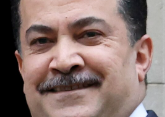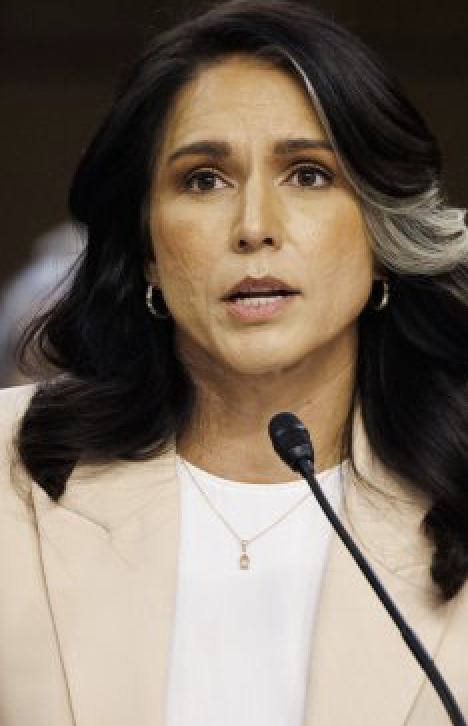December 20-2013
The US government last Thursday cited 11 firms, four people and three tankers for violating US sanctions on Iran and imposed penalties on them.
The Islamic Republic mumbled about the actions being incompatible with the November nuclear agreement, in which Washington said it would not “impose new nuclear-related sanctions,” and pulled its negotiators out of ongoing low-level talks in Geneva. But within days, Tehran said it was not pulling out of the talks and looked forward to continuing them despite Washington’s actions.
A Russian deputy foreign minister said what the United States had done violated the November 24 agreement, going far beyond Tehran’s inconclusive mutterings. No other member of the Big Six backed Moscow.
Washington handled the matter very calmly, apparently assuming that the Foreign Ministry in Tehran was just trying to act tough in order to fend off potential attacks from hardliners.
While many hardliners in the Majlis spoke at length about how the “untrustworthy” Americans had “clearly violated” the agreement, the Foreign Ministry minced its words. For example, Deputy Foreign Minister Abbas Araqchi said the United States had violated “the spirit” of the November agreement, but avoided accusing Washington of violating the agreement itself.
Later, Foreign Minister Mohammad-Javad Zarif said the US actions were “extremely counterproductive,” but he didn’t even hint that they violated the agreement. And he said that Iran is committed “100 percent” to continuing the talks toward a comprehensive nuclear agreement.
US Secretary of State John Kerry spoke quietly but made clear Washington felt it had not violated either the spirit or substance of the agreement. The US actions last week, he explained, were enforcing existing sanctions, not enacting new sanctions. The actions punished the 18 named entities for violating sanctions that had long been in place.
Furthermore, Kerry said he had told the Iranian delegation in Geneva that Washington would continue to enforce existing sanctions and had even notified Tehran before last Thursday’s announcements of the new enforcement actions.
The negotiators had agreed in November that existing sanctions would continue in force. There was no dispute over that. If the sanctions were not enforced and violators were not punished, that would have the same effect as if the sanctions had been lifted as no one would bother to abide by them. So the argument was clearly on the US side. The fact that Washington did not slam Tehran harshly for implying that Washington was violating the agreement indicated that Washington saw Tehran’s remarks as intended purely for domestic consumption.
Washington said nothing publicly about the Russian comments, though it is likely diplomats conveyed firm words in private to Moscow.
Working level officials from Iran and the Big Six were meeting in Geneva to write out the details for carrying out the November agreement when Washington announced its actions against the 18 people and entities last Thursday. Reuters quoted a diplomat in those talks as saying the Iranian delegation notified the others Thursday evening that they had received instructions from Tehran to stop all discussions and return to Iran. He assumed it was due to the US announcement, but the Iranian delegation gave no explanation.
EU officials expressed no concern, saying it was understood that at some point all the delegations would have to return to their capitals to go over what had been discussed.
On Tuesday, five days after the Iranians went home, Araqchi met in Brussels with Catherine Ashton, the EU foreign affairs chief. Afterward, he announced that the working level talks would resume as soon as a date could be fixed.
The November 24 agreement states: “The US Administration, acting consistent with the respective roles of the President and the Congress, will refrain from imposing new nuclear-related sanctions.” Commentators noted that the wording recognized that a president cannot stop the Congress from voting new sanctions; even a presidnetial veto of new sanctions could be overridden by a two-thirds majority of both houses.
But few noted that the new agreement applied only to “nuclear-related” sanctions. The United States has also imposed sanctions on Iran and Iranian officials for human rights violations, for acts of terrorism, for missile development and for support for Syrian government repression. Under the agreement, sanctions can still be imposed for those—or other—reasons. It will be interesting to see if Washington now moves swiftly to find some other sanctions it can impose to spite Tehran or if it withholds other sanctions so as not to give the Foreign Ministry more grief with the hardliners.
Many hardliners in the Majlis were quite vocal in condemning the United States after last Thursday’s sanctions enforcement actions were announced. Many said without qualification that the United States had violated the accord. Many said the US action proved it was untrustworthy and that it was useless to try to deal with the Americans.
However, the Iran Times did not find any of those complainers demanding that the government declare the November agreement void because of the US actions or insisting that Tehran break off the talks with the Big Six.
If, in fact, they truly believed what they were saying that the United States had unequivocally violated the agreement, then the mildest action anyone in Tehran should have proposed would be a suspension of the talks until the United States rescinded its actions of last Thursday. But the Iran Times found no one in Tehran proposing that. There was nothing but hot yet hollow rhetoric. That suggests the hardliners have gotten a lecture from the Supreme Leader and are under instructions to limit their criticism to fringe issues and not try to spike the agreement.
The announcement last Thursday cited four people (three Iranians and a Ukrainian), 11 firms (seven Iranian, two Singaporean, one Philippine and one Ukrainian) and thee tankers (flying the Panamanian flag) for violating US sanctions by helping Iran’s nuclear program. The announcement also updated information on 33 Iranian tankers previously sanctioned; Iran regularly changes tanker names and ownership to try to hide them from sanctions enforcement.
The announcement even addressed the issue of new sanctions versus enforcement of existing sanctions. It said the November agreement “does not and will not interfere with our continued efforts to expose and disrupt those supporting Iran’s nuclear program or seeking to evade our sanctions.”
It appeared to some that Washington might have taken the action in part because there have been so many news stories and so many comments from members of Congress about the November agreement “weakening” sanctions. The Administration clearly wants to squelch that idea. In fact, the reaction from Tehran actually helped to give more publicity to the fact that sanctions remain in place and are being enforced.
In announcing the actions last Thursday, Treasury Under Secretary David Cohen said, “Today’s actions should be a stark reminder to businesses, banks and brokers everywhere that we will continue relentlessly to enforce our sanctions, even as we explore the possibility of a long-term, comprehensive resolution of our concerns with Iran’s nuclear program.”
The announcement said the people and entities being cited had tried “to conceal [Iran’s] evasive activities by using front companies in foreign countries to deceive foreign suppliers to support [Iran’s] illicit proliferation and evasion activities.”
The punishments freeze any assets the 18 people and entities may have in the United States and prohibit any transactions between those 18 and “US persons,” a legal term that embraces anyone legally resident in the United States, including green card holders, students and refugees. But the real hammer is that any foreign bank doing business with any of the 18 can have its access to the US financial system severed. Foreign banks fear that punishment and avoid the people and businesses cited by the US Treasury.
Among those cited last week was Eyvaz Technic Manufacturing Co. for procuring components for centrifuges, such as valve bellows and vacuum pumps.
Also cited was Siqiriya Maritime of the Philippines and three ships it sails under the Panamanian flag, Anthem, Jaffna and Olysa.
The full list is available on the State Department website at http://www.state.gov/r/pa/prs/ps/2013/218637.htm.
A day earlier and with much less attention, the Commerce Department cited 19 people and companies for acting as middlemen procuring supplies for Mahan Air, which is under sanctions. The November agreement allows some purchases of aircraft parts and repairs, but the 19 people and firms cited last week by the Commerce Department were punished for actions taken before the November agreement.
Many US conservatives have been charging that the Obama Administration halted enforcement of sanctions after President Rohani was elected in an effort to appeal to him. Enforcement actions have been issued very erratically over the years—sometimes on successive days, sometimes not for a month or more. Since Rohani took office August 4, the US government has issued just two enforcement actions—against 10 people and entities September 6 and against the 18 last week.
In Singapore, the government declined to defend the two businesses that were cited by Washington last week. “We are not in a position to enforce the laws of other countries,” the Singapore Foreign Ministry said in a statement. “However, given the importance of the US in the world economy, we expect companies with dealings with countries subject to unilateral US sanctions will take notice of these and other prior cases and make their own calculations and decisions based on how this might impact on their own commercial interests.” In other words: you’re own your own; don’t seek help from the government of Singapore.





















